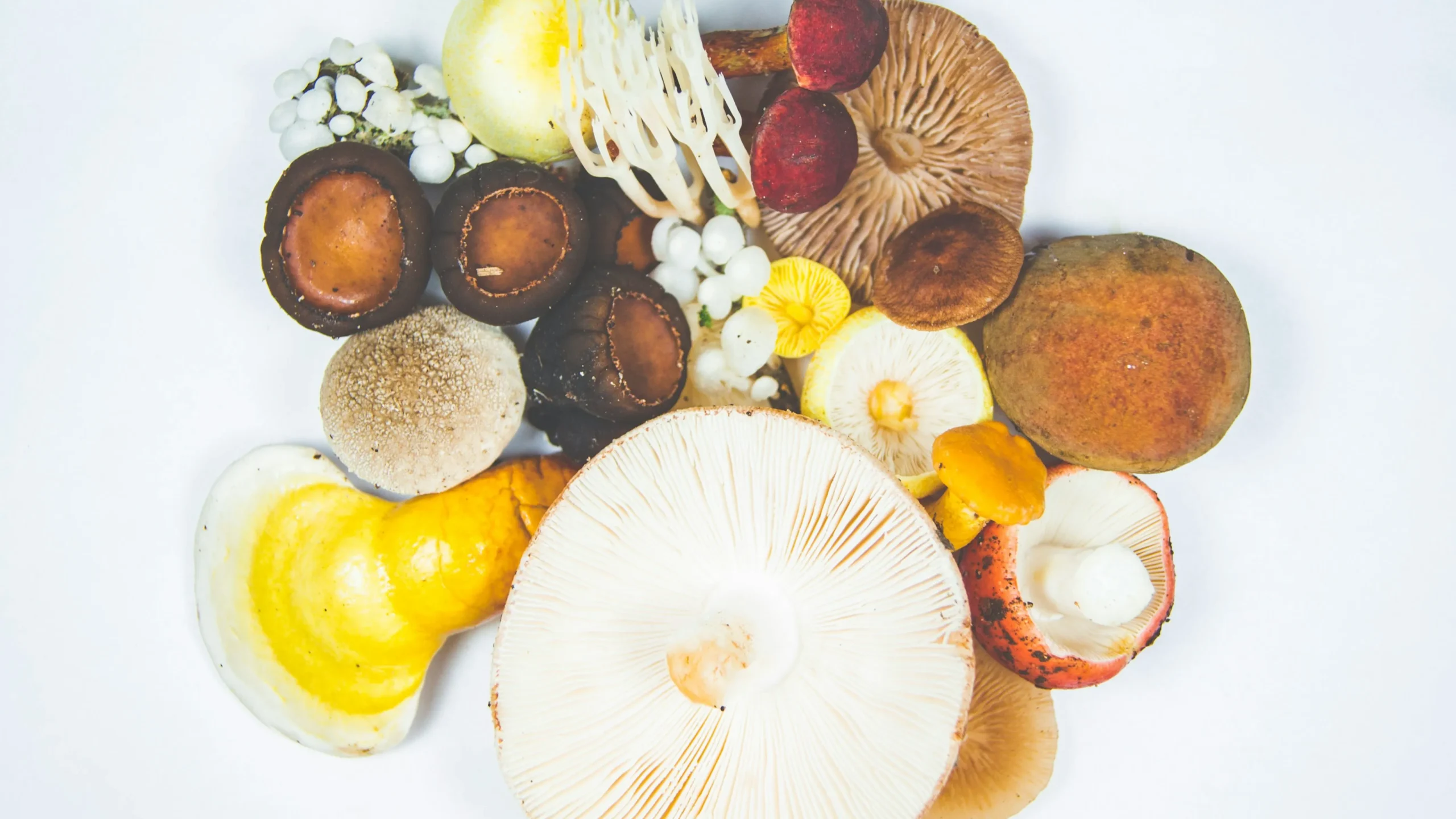Laten we ons opnieuw verbinden met de wijsheid van uw lichaam. Intuïtief eten biedt een verfrissende benadering van voeding die zich losmaakt van de dieetcultuur en beperkende eetpatronen. Als raamwerk dat in de jaren negentig door diëtisten Evelyn Tribole en Elyse Resch is ontwikkeld, moedigt intuïtief eten ons aan om te vertrouwen op de natuurlijke honger- en volheidssignalen van ons lichaam, terwijl we tegelijkertijd een gezondere relatie met voedsel en lichaamsbeeld ontwikkelen. Het maakt gezond eten een stuk makkelijker.
De strijd met eten
De relatie die we hebben met eten en eten is heel persoonlijk. Het wordt beïnvloed door ervaring, opvoeding en ons fysieke functioneren. Op dagelijkse basis zijn er verschillende factoren van invloed, zoals emoties, structuur van de dag, tijd en aandacht. Het voeden van ons lichaam kan iets heel complex zijn. Vraag jij je ook regelmatig af of je wel het goede doet? Over hoe vaak en hoeveel je eet. Of is het een voortdurend onderhandelen over wat je wel en niet ‘mag’ eten? Voel je je achteraf schuldig? Is voedsel afhankelijk van het gewicht dat de weegschaal wegslaat? En hoe weet je of je echt honger hebt, of ‘vol’? Dit zijn veel voorkomende worstelingen. Maar wat als het niet zo ingewikkeld hoeft te zijn?
Wat is intuïtief eten?
In de kern gaat intuïtief eten over het terugkeren naar de manier waarop we als kinderen van nature aten – voordat externe regels onze relatie met voedsel ingewikkeld maakten. Het is een eetmethode voor zelfzorg die instinct, emotie en rationeel denken integreert, waarbij de wijsheid van je lichaam wordt gecombineerd met de voedingskennis die de gezondheid ondersteunt. Je lichaam weet wat jij het beste kunt doen. Kinderen hebben meestal gelijk als het gaat om wat hun kernbehoeften zijn. We moeten ze alleen opnieuw leren herkennen.
De aanpak is gebaseerd op tien belangrijke principes:
- Verwerp de dieetmentaliteit
- Eer je honger
- Sluit vrede met eten
- Daag de voedselpolitie uit
- Ontdek de tevredenheidsfactor
- Voel je volheid
- Ga met vriendelijkheid om met emoties
- Respecteer je lichaam
- Voel uw bewegingsbehoeften
- Eer uw gezondheid met zachte voeding
De wetenschap achter intuïtief eten
Onderzoek ondersteunt de voordelen van intuïtief eten. Uit onderzoek is gebleken dat intuïtieve eters doorgaans:
- Lagere niveaus van ongeordend eten
- Betere psychologische gezondheid
- Verbeterd lichaamsbeeld
- Meer voedingsvariatie
- Stabiel gewichtsbeheer
- Lagere niveaus van stresshormonen
Een recensie uit 2020 in de Journal of Academy of Nutrition and Dietetics analyseerde 97 onderzoeken en vond consistente verbanden tussen intuïtief eten en zowel fysieke als psychologische gezondheidsindicatoren.
Praktische stappen om een intuïtieve eter te worden
Begin met hongerbewustzijn
Begin door eenvoudigweg uw hongersignalen op te merken. Pauzeer voordat u gaat eten en vraag: “Heb ik fysiek honger?” Leer onderscheid te maken tussen fysieke honger (lege maag, grommen, energiedipjes) en emotionele honger (plotselinge trek, specifieke voedselverlangens, eten ondanks volheid).
Probeer uw honger te beoordelen op een schaal van 1 tot 10, waarbij 1 staat voor extreem hongerig en 10 voor onaangenaam vol. Probeer te eten als je rond de 3 of 4 zit en stop als je een comfortabele 6 of 7 hebt bereikt. In het begin kan het handig zijn om je scores te noteren en te controleren hoe je lichaam zich de komende uren voelt. Misschien scoor je het gevoel de volgende keer met een ander nummer.
Mindful eetpraktijken
Probeer deze eenvoudige, bewuste eetgewoonten te integreren:
- Verwijder afleiding tijdens de maaltijden, zoals schermen, kranten, spelletjes, enz.
- Haal een paar keer diep adem voordat je gaat eten
- Let op de kleuren, texturen en aroma’s van je eten; Het waarnemen van voedsel is leuker samen met eetgenoten
- Kauw grondig en geniet van elke hap
- Zet je keukengerei tussen de happen door neer
- Neem halverwege de maaltijd contact op met uw lichaam om de volheid te meten. Geef uw lichaam vijf minuten de tijd om het te verkennen
Beginnen met een of twee hiervan is een goed begin. Wees niet te streng voor jezelf. De volgende zullen snel volgen.
Geef jezelf onvoorwaardelijke toestemming
Een hoeksteen van intuïtief eten is jezelf toestemming geven om te eten wat je echt wilt, zonder oordeel. Je kent vast wel het schuldgevoel bij het eten van die zoete taart, of net iets te veel van die chocolade, of zelfs een gezond tussendoortje. Daag jezelf uit in de toestemming om de taal van je lichaam te volgen. In het begin kan dit eng aanvoelen; velen zijn bang dat ze voor altijd alleen maar koekjes en chips zullen eten. Uit onderzoek blijkt echter dat wanneer voedsel niet langer verboden is, de aantrekkingskracht ervan afneemt en dat voedzame keuzes na verloop van tijd natuurlijk aantrekkelijker worden.
Eer je gevoelens zonder voedsel te gebruiken
Ontwikkel alternatieve copingstrategieën voor emotionele momenten:
- Bij angst: diep ademhalen, korte wandelingen, voorzichtig strekken
- Tegen verveling: doe een hobby, bel een vriend, lees een boek
- Bij verdriet: maak een dagboek, luister naar muziek, oefen zelfcompassie
Oefen zachte voeding
In plaats van strenge regels betekent zachte voeding het maken van voedselkeuzes die zowel de gezondheids- als de smaakvoorkeuren respecteren. Bedenk hoe voedsel je lichamelijk laat voelen, terwijl je erkent dat tevredenheid net zo belangrijk is.
Vraag uzelf af: “Welk voedsel zou mij nu zowel verzadigen als ervoor zorgen dat mijn lichaam zich daarna goed voelt?”
Navigeren door uitdagingen
De reis naar intuïtief eten is niet altijd lineair. U kunt het volgende tegenkomen:
Verwarring over hongersignalen: Jarenlang negeren van deze signalen kan ervoor zorgen dat ze in eerste instantie moeilijk te herkennen zijn. Wees geduldig en blijf bewustzijn oefenen.
Angst voor gewichtsveranderingen: Velen maken zich zorgen over gewichtstoename als ze intuïtief gaan eten. Vergeet niet dat uw lichaam natuurlijke wijsheid heeft over het ideale gewicht als het op de juiste manier wordt gevoed.
Sociale druk: U kunt vragen krijgen over waarom u de nieuwste voedingstrend niet volgt. Bereid eenvoudige antwoorden voor die voor u prettig aanvoelen.
Wanneer moet u ondersteuning zoeken?
Hoewel intuïtief eten voor velen gunstig is, wordt professionele begeleiding aanbevolen als:
- Je hebt een geschiedenis van eetstoornissen
- U heeft een medische aandoening die specifieke voedingsoverwegingen vereist
- Je merkt dat je worstelt met de emotionele aspecten van het veranderen van je relatie met eten
Neem bij twijfel gerust contact met ons op als u vragen of opmerkingen heeft.
Laatste gedachten
Intuïtief eten is niet zomaar een dieet, het is een terugkeer naar het vertrouwen op de aangeboren wijsheid van je lichaam over voeding. De reis kost tijd en geduld, maar de vrijheid van voedselregels en een verbeterde relatie met zowel voedsel als lichaam zijn beloningen van onschatbare waarde.
Door je honger te eren, je volheid te respecteren en vrede te sluiten met eten, kun je de vreugde van eten herontdekken en tegelijkertijd je algehele gezondheid ondersteunen, zowel fysiek als emotioneel.
Onthoud dat elke kleine stap om een intuïtieve eter te worden vooruitgang is, en dat compassie voor jezelf gedurende het hele proces essentieel is.






